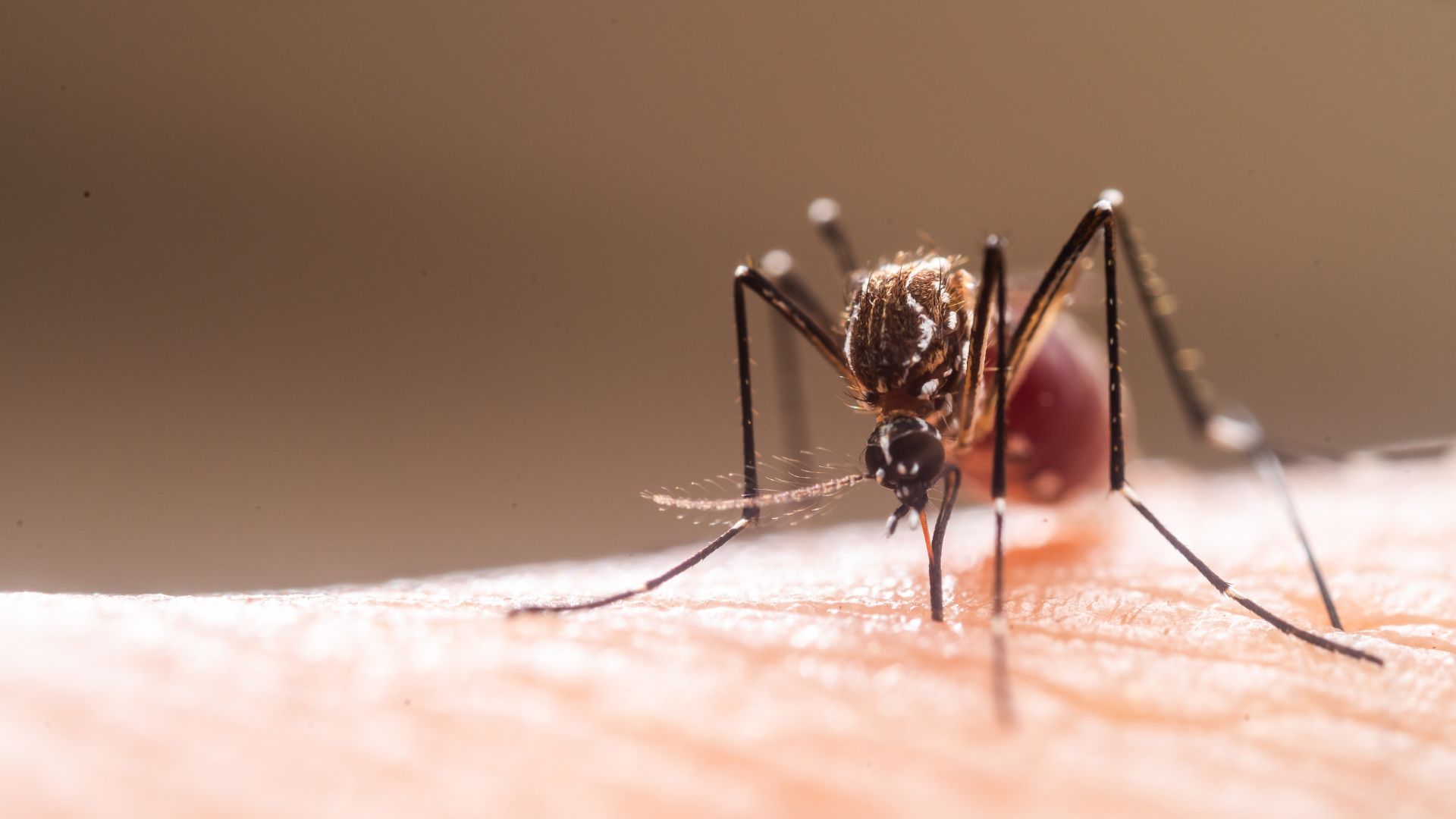
During the warmer, summer months, we’re able to enjoy our yards in all their glory. The opportunity to spend sunny days outside, relishing in the heat to thaw off the cold of winter, is a wonderful time of year. Unfortunately, there’s pests that threaten our joyful experience, including the annoying buzzing and biting of mosquitoes.
While there’s plenty of ways to get rid of mosquitoes in your home and your yard, rather than buying a trap, you can make your own. In fact, it’s a really effective, cheap, and natural alternative. Crafting something non-toxic has the added advantage of being eco-friendly, as well as harmless to you, your pets, and the thriving ecosystem of beneficial insects in your yard.
The mosquito trap below specifically targets mosquito larvae, tackling the problem at the source. But, to add to your line of defense, why not try these 9 plants that repel mosquitoes, too?
Mosquito trap shopping list
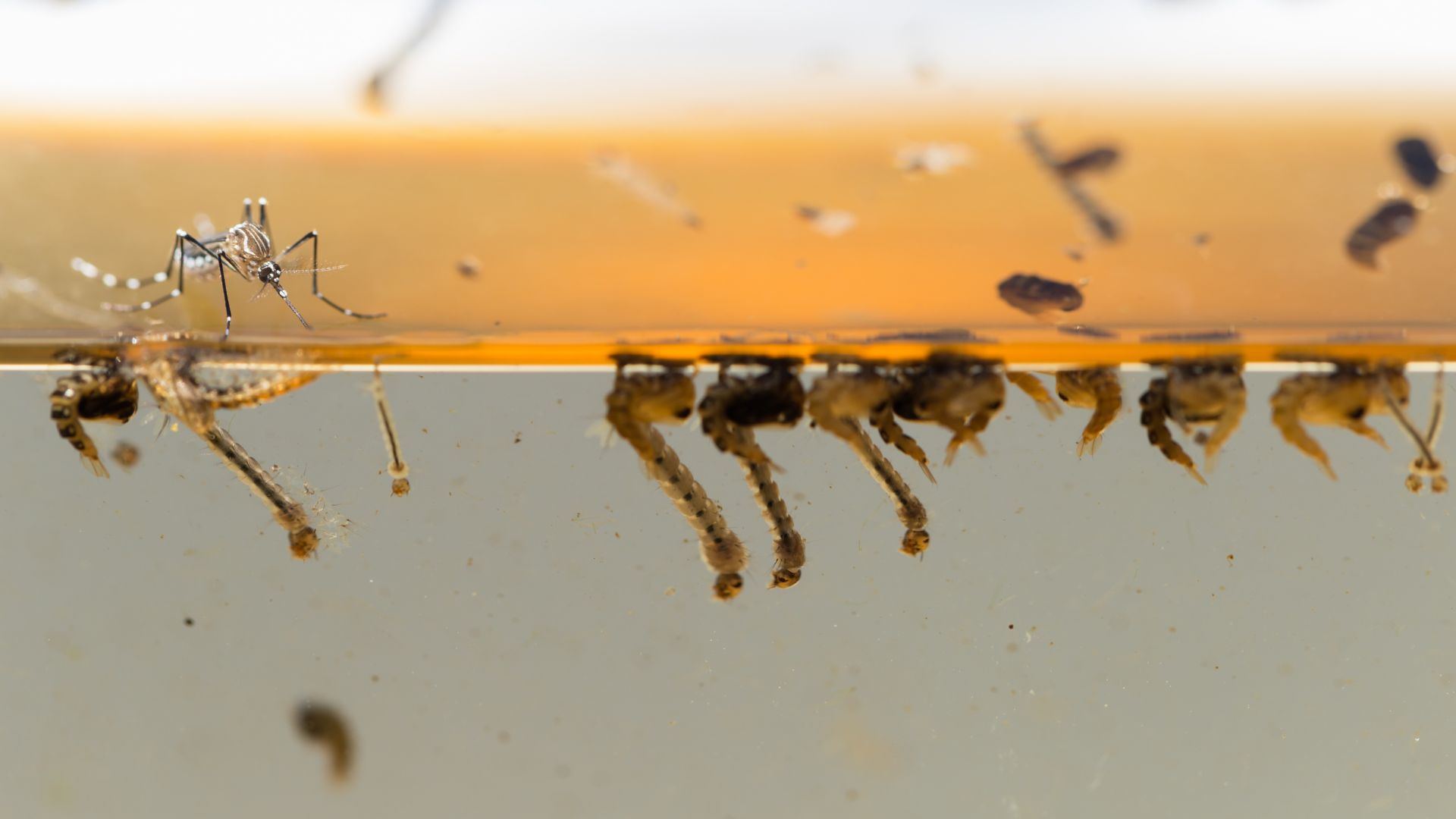
What you’ll need to make your own mosquito trap:
- A bucket
- Straw
- Water
- Mosquito dunks (we suggest Summit, $7.99 at Amazon)
- Wire of mesh covering
Instructions
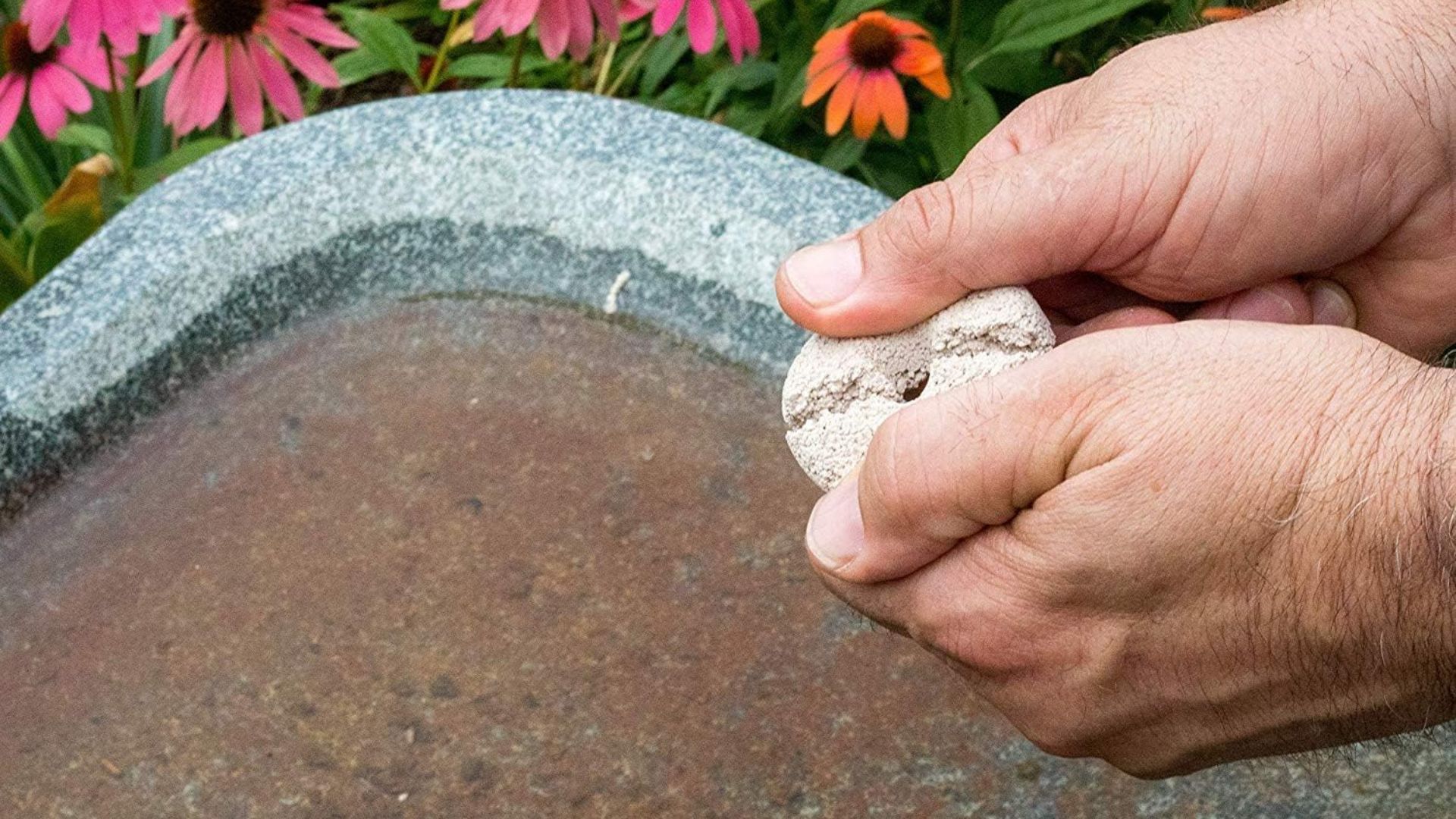
1. Fill an empty bucket with three or four cups, or handfuls, of straw or hay. Using straw or hay is the best way to encourage female mosquitoes to lay their eggs as it boosts the growth of diatoms and algae, mosquito larvaes’ favorite meal. You can also use other plant matter such as grass and dead leaves.
2. Cover the straw/hay with water until it’s about halfway full, or around three times as much water as you have straw. You can use water from the tap or rain water collected from outside.
3. Let the mixture ferment for a few days. To fasten up this process, place your bucket in a sunny spot.
4. Place a mosquito dunk or mosquito bits on top of the fermented mixture in the bucket. Dunks are natural repellents that kill mosquito larvae made of BTI
5. Cover the bucket with chicken wire or any other suitable mesh covering. This will allow adult mosquitoes to enter, but keep other wildlife out. Place this away from pets and small children as it has sharp points.
6. Set your mosquito trap in any area you notice a lot of mosquitoes, or by any shaded spot or near standing water.
7. Refresh your trap every 3-4 weeks. Empty the water, straw, and dunks or bits. Rinse the bucket out thoroughly and redo the previous six steps.
What is Bacillus thuringiensis israelensis (BTI)?
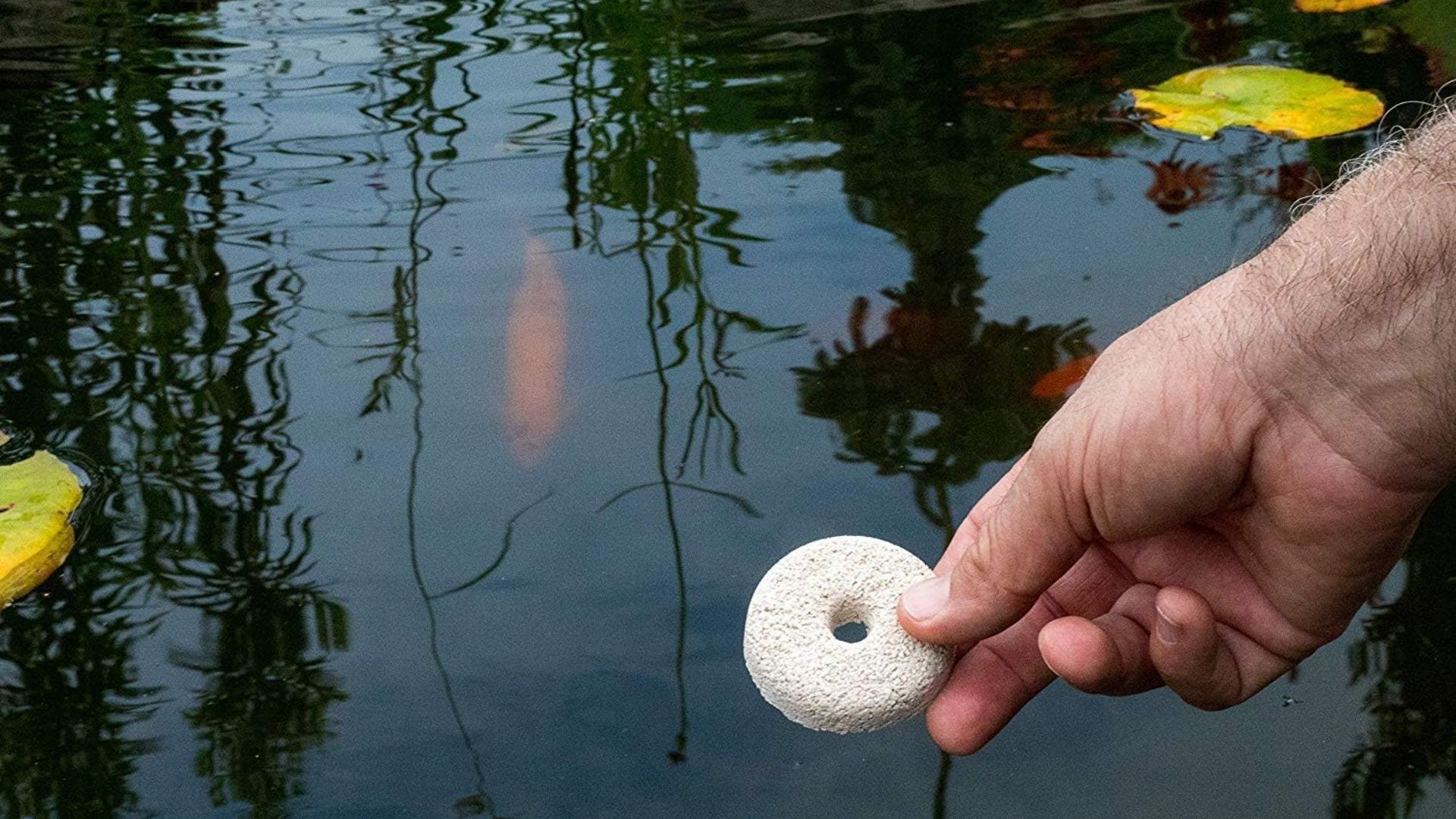
Bacillus thuringiensis israelensis, or BTI for short, is a naturally occurring bacterium found in soil. It’s a great alternative to using toxic insecticides in killing mosquito larvae and is used in many forms including mosquito dunks, bits, pellets, liquid, granules, and briquettes.
BTI is only toxic to mosquitoes, fungus gnats, and flies, and will not harm the other beneficial wildlife in your yard, such as honeybees, and importantly you, your family, and your pets. BTI products can be applied to the natural mosquito trap outlined above or any standing water to target and kill mosquito larvae.
When is the best time to kill mosquitoes?
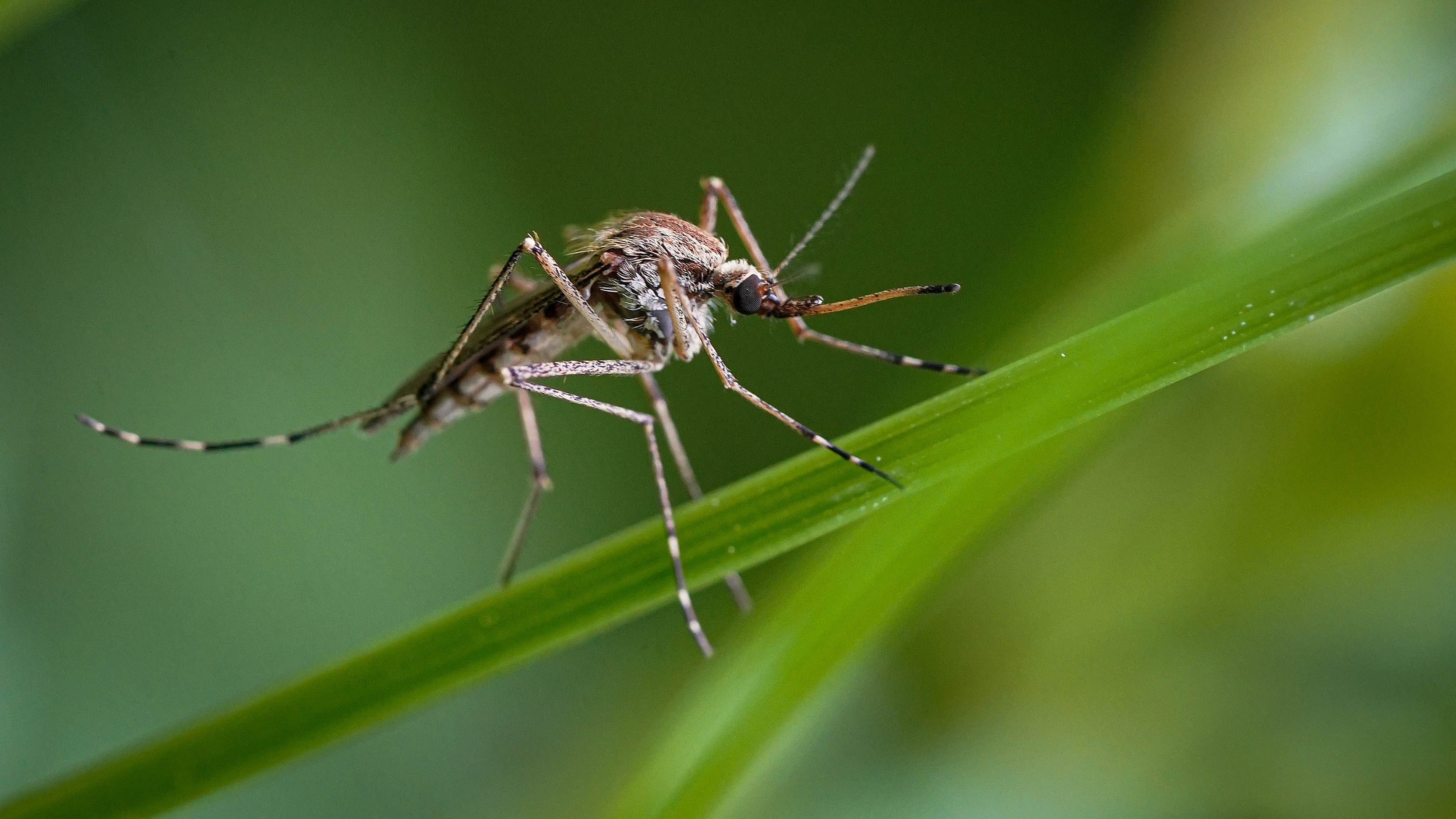
By this, we don’t mean what time of day or month of the year. With mosquitoes, they have four stages to their life cycle and within that cycle, there’s definitely a best time to kill them.
The four stages are egg, larvae, pupae, and adult mosquitoes. Female mosquitoes are the ones you have to worry about as they bite, but they also breed. They only tend to mate once though, so once they lay their eggs, targeting the larvae produced from these eggs is the best time to kill mosquitoes.
Not only is it the easiest time because it’s when they are most vulnerable, but they’re also the easiest to find in areas of standing water and because they’re classed as “wrigglers” as you’ll spot them wriggling around. That’s why the mosquito larvae trap is your best option.
How to keep mosquitoes at bay
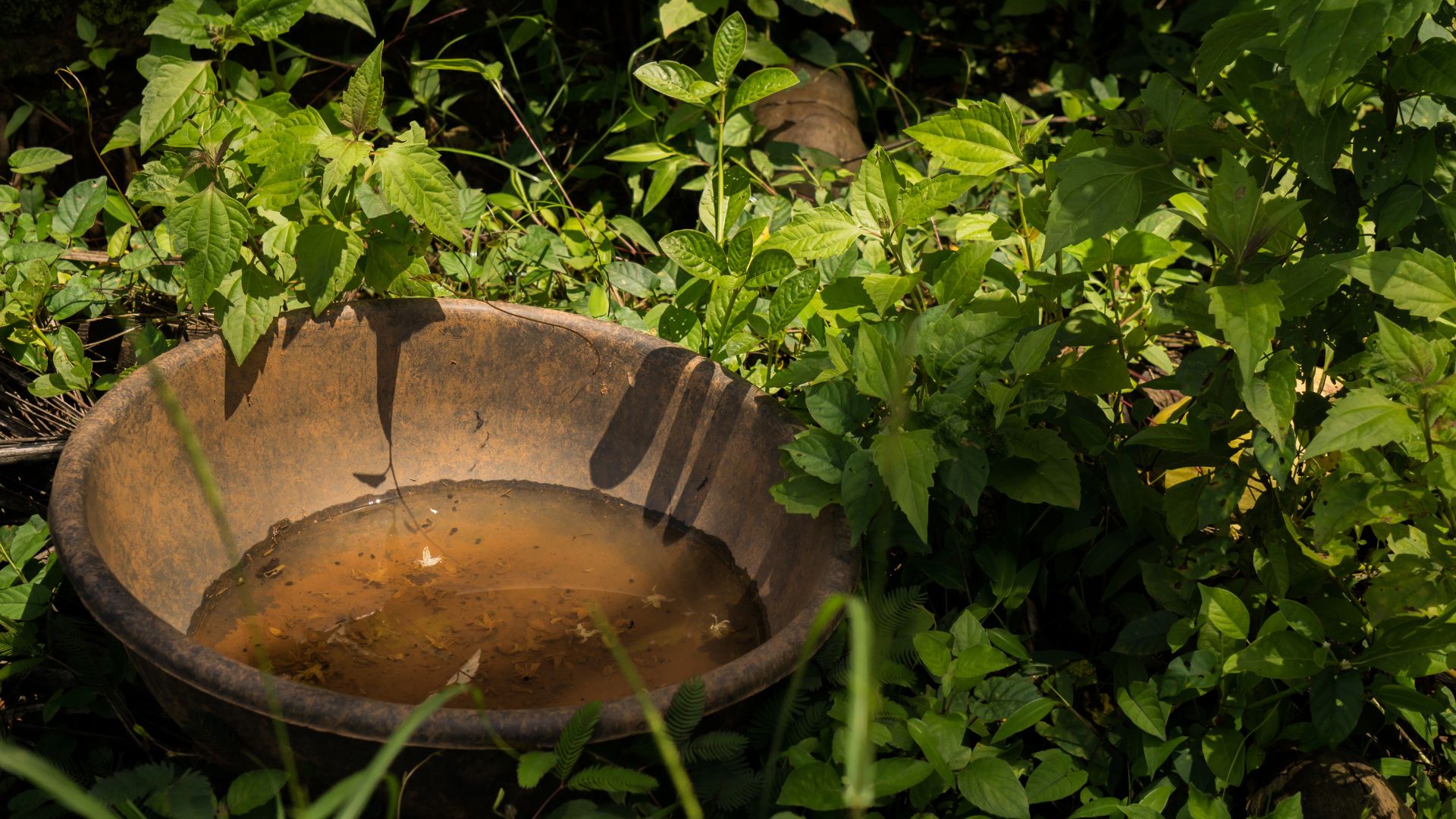
Placing natural mosquito traps is a great way to kill mosquitoes at the source. But, there’s certainly other things you can do around your home and yard to keep the problem at bay. You can use these 5 colors to repel mosquitoes, you can make sure you’re not doing these 7 things that attract mosquitoes, and you can follow our tips below on things you can do day-to-day to keep them at bay:
- Make sure all standing water is removed, e.g. buckets, toys, pools, birdbaths, flowerpots, anywhere that mosquitoes can lay their eggs.
- Cover any water storage containers that you must keep to stop mosquitoes getting in.
- Fill any unnecessary holes around your yard or home to prevent them from filling with water.
- Use larvicides or adulticides for targeting different life stages of mosquitoes.
- Repair any cracks or gaps around your home, especially around windows and door screens.
- Make sure you keep doors closed.
- Use air conditioning, where possible.







